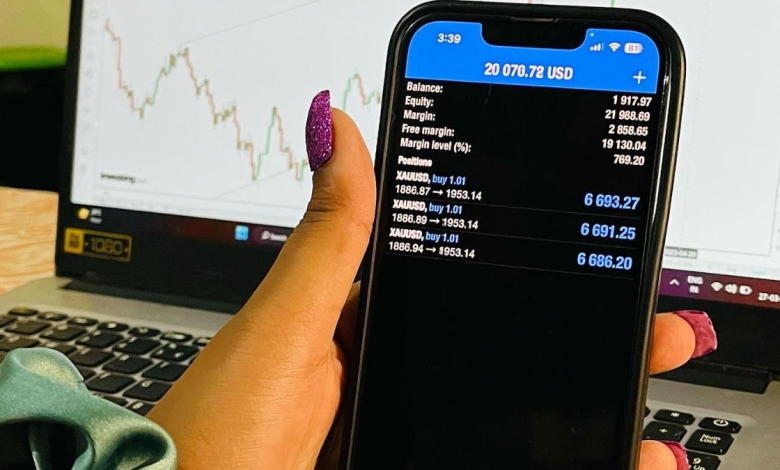The Role of the South African Rand (ZAR) in Global Forex Markets: What Gauteng Traders Should Know

The South African Rand (ZAR) plays a crucial role in the global forex markets. As one of the most traded emerging market currencies, it attracts the attention of investors, hedge funds, and day traders around the world. But for traders in Gauteng—home to Johannesburg, South Africa’s financial hub—understanding how the rand behaves on the global stage is not just useful, it’s essential.

This article breaks down the importance of the rand in global markets, the key factors that influence its value, and how local traders in Gauteng can leverage that knowledge to make smarter forex decisions.
ALSO READ: 7 Mistakes That Can Get Your SARS Tax Return Audited in 2025
Why the South African Rand (ZAR) Matters in Forex Markets
The South African Rand (ZAR) is consistently ranked among the top 20 most traded currencies globally, according to the Bank for International Settlements (BIS). Despite South Africa’s economy being relatively smaller than major economies like the US or EU, the ZAR punches above its weight.
Here’s why:
- High Liquidity & Volatility: The ZAR is known for its price swings, which makes it attractive to short-term forex traders.
- Commodities Influence: As South Africa is a leading exporter of gold, platinum, coal, and iron ore, the rand’s value is closely tied to commodity price movements.
- Gateway to Africa: Investors often use the ZAR as a benchmark or proxy for African and emerging market investments.
Key Factors That Move the Rand
Understanding what influences the ZAR’s value helps traders make better decisions. Here are five major drivers of the South African Rand:
1. South African Reserve Bank (SARB) Policy
Interest rate decisions by the South African Reserve Bank play a huge role in determining the rand’s strength. Higher interest rates tend to strengthen the rand as investors chase better returns.
2. Political and Economic Stability
Events like cabinet reshuffles, corruption scandals, or elections can trigger rapid movements in the currency. Political uncertainty often results in a weaker rand.
3. Global Market Sentiment
During times of global risk (like wars or pandemics), investors pull money from emerging markets, weakening the rand. In contrast, when confidence returns, capital flows back, strengthening the ZAR.
4. Commodity Prices
Because South Africa’s economy relies heavily on mining, changes in global commodity prices directly affect the ZAR. When gold and platinum prices rise, the rand often strengthens.
5. USD/ZAR and Global Forex Trends
The USD/ZAR is the most traded ZAR currency pair. A strong US dollar can push the rand down, while a weak dollar can boost it. Monitoring global USD trends is critical for South African traders.
What Gauteng Traders Should Know
Gauteng is the economic powerhouse of South Africa, with Johannesburg being a major financial hub. Local traders have access to a wealth of trading tools and financial institutions that offer resources tailored to ZAR trading.
Here’s how Gauteng traders can stay ahead:
1. Follow Reliable Financial News
Use credible platforms like BusinessTech, Fin24, or Bloomberg Africa to track Rand-related news, market analysis, and interest rate decisions.
2. Watch the Economic Calendar
Use tools that show major upcoming events like SARB meetings, inflation reports, and GDP data. These events often cause major movements in the rand.
3. Use a Balanced Trading Strategy
Due to its volatility, the rand can experience sharp spikes. Traders should use stop-losses and avoid over-leveraging. Technical analysis (charts and patterns) and fundamental analysis (news and economic indicators) should both be part of your trading plan.
4. Choose Local Brokers with Global Reach
Platforms such as Standard Bank Forex and Nedbank CIB offer rand-focused trading products and insights tailored to South African traders.
The ZAR in Global Currency Pairs
While USD/ZAR is the most popular, other pairs like EUR/ZAR, GBP/ZAR, and ZAR/JPY provide additional opportunities. These pairs allow diversification but require a good understanding of the global economic landscape.
For example:
- EUR/ZAR may be influenced by European Central Bank policies.
- GBP/ZAR can be impacted by UK economic data and Brexit developments.
The Future Outlook of the South African Rand (ZAR)
The rand is expected to remain a key player in global forex markets due to South Africa’s resource wealth and relatively open financial markets. However, its long-term strength will depend on domestic reforms, political stability, and global economic trends.
With ongoing infrastructure projects, renewable energy growth, and policy reforms, the outlook could improve in the coming years. For now, the rand remains a high-risk, high-reward currency—ideal for traders who understand how to manage volatility.
MORE READS: How Mobile Apps Are Changing The Way South Africans Bank
Final Words
The South African Rand (ZAR) holds a unique position in the global forex landscape. Its connection to commodities, emerging markets, and global investor sentiment makes it both an opportunity and a challenge.
For Gauteng traders, success lies in staying informed, using proper risk management, and capitalizing on the wealth of local and international resources available.
By understanding the forces behind the ZAR’s movement and using that knowledge wisely, local traders can confidently compete in one of the world’s most exciting financial markets.




